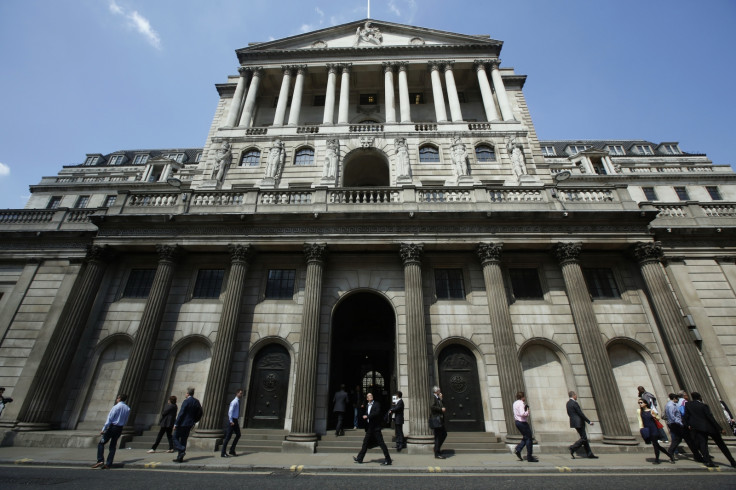Bank of England: Central banks looking at 'hybrid systems' using Bitcoin's blockchain technology

The Bank of England has said central banks are looking at ways to implement "hybrid systems" involving distributed ledger technology of the type currently used to record bitcoin transactions.
It is interesting to get an insight into the thought processes of the governors of international banking in this regard. Would a combination of a distributed ledger with some sort of trusted third party overseeing remain a decentralised system?
Naturally, the preferred option for central banks would be to stay in charge of the nuts and bolts of the flow of money of all stripes through the financial system.
Central banks are the governors in terms of regulation and have a mission to ensure financial stability throughout the system. They are alive to potential scale of disruption visited upon them by money over IP and are even looking at use cases whereby they might issue cryptocurrencies.
The Bank of England said: "There is more than one way in which a distributed ledger system can work, and remuneration would have to be designed in such a way as to incentivise honest participation in the system without leading to socially inefficient over-investment in transaction verification.
"Further research would also be required to devise a system which could utilise distributed ledger technology without compromising a central bank's ability to control its currency and secure the system against systemic attack."
Hybridox
As alluded to above, any ledger system that's both centralised and decentralised at the same time is a hybrid verging on a paradox.
The blockchain that time stamps bitcoin transactions into existence is immutable by virtue of the fact that it garners more computing power as a network than any concerted effort to tamper with the chain, which is continually updated.
Some central bank research seemed to invoke a shift away from the intended decentralisation of the system, due to the way bitcoin mining has evolved away from individuals (the bitcoin faithful that made up the first trusted nodes, and who may have used a laptop to update bitcoin transactions) towards large organised mining operations using industrial grade central processing unit (CPU) capabilities.
There is more than one way in which a distributed ledger system can work, and remuneration would have to be designed in such a way as to incentivise honest participation in the system without leading to socially inefficient over-investment in transaction verification
Apparently, the bitcoin mining community now uses more electricity than the Republic of Ireland. A more sustainable model will be required, according to central bank research.
Regulatory control is unsurprisingly the armour central banks will advance with. The BoE said: "The first question is whether a protocol for a central bank issued digital currency could be developed at all.
"Creating such a system would entail creating a protocol for value transfer over the internet, akin to what Berners-Lee (1989) did for information. Firms offering digital currency services, such as wallets or currency exchange, would operate on top of the platform, raising the question of how they should be regulated.
"As they would not be offering to hold funds on their own account, the prudential regulatory issues would probably be different from the conventional focus on capital and liquidity requirements at existing banks.
"Conduct issues, particularly those relating to know your customer (KYC) and anti-money laundering (AML), would also have to be addressed by such firms. Further research would also be required into how digital identity management could be achieved while balancing privacy considerations."
© Copyright IBTimes 2025. All rights reserved.




















